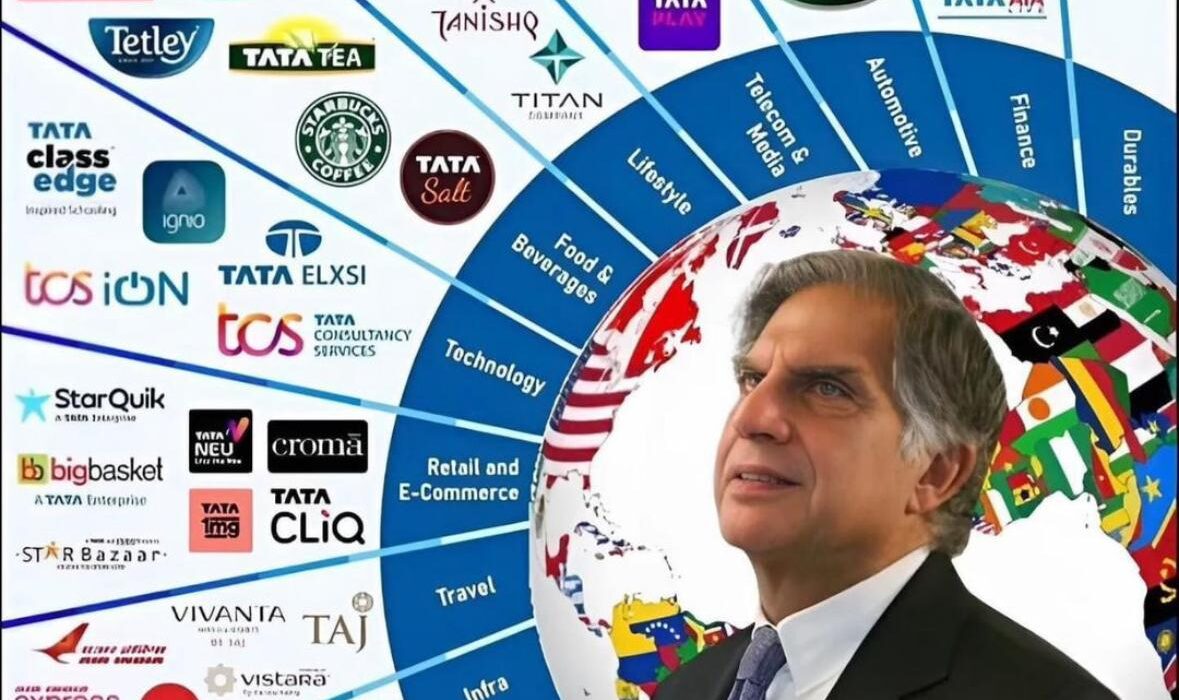Ratan Tata, the former chairman of Tata Sons, is a giant in Indian business and philanthropy alike. Born to the great Tata family on December 28, 1937, Ratan Tata represents inspiration, leadership, and ethical business practices. During his stint at Tata, he took this already giant house in the Indian corporate world and delivered benchmarks in different industries across the globe under his leadership.
Tata Empire Expansion
An era began for India with Ratan Tata taking the helm as chairman of the Tata Group in 1991, characterized by its economic liberalization. During this period of time, the group made tremendous globalization through investments such as Tetley in 2000, Corus in 2007, and the legendary Jaguar Land Rover in 2008. Such bold moves indicated Tata’s vision to make the group a global leader in various sectors-from automotive to steel and beverages to technology.
The leadership approach is what makes Ratan Tata truly special. Rather than making profits, he was centered on long-term growth and sustainability. He ensured that Tata companies stood for high ethics and social responsibility, leading to a reputation very pristine and unblemished across the world.
Focus on Innovation
Ratan Tata has represented innovation as one of the significant leadership attributes. He kept producing products that generate positive outcomes from society. The most signature example is the Tata Nano that was designed as the cheapest car in the world with a view to making car ownership available for millions of Indians. Although it was not a commercial success, at least in terms of widespread popularity, the concept itself showed that Tata was genuinely concerned about the welfare of the common man, who should benefit from the quality of life ameliorated in society.
TCS is another luminous example of Tata, launched as Tata Consultancy Services, which today is one of the biggest IT companies worldwide. His ardor for innovation has placed the Tata Group at the forefront of many industries.
A Philanthropic Leader
What makes Ratan Tata distinct from other corporate leaders is his modesty and dedication towards philanthropy. He continues to contribute immensely towards the welfare of society focused on health care, education, rural development, among others. About 66% equity in Tata Sons is held by the philanthropic trusts making it one of the most socially responsible corporations in the world.
Ratan Tata began investing in different startups in 2013 and began to mentor those young entrepreneurs through funding. He showed once again that he believed in empowering the next generations and ensured the innovation continues to thrive in India.
Legacy of Integrity and Trust
Throughout his entire career, Ratan Tata has been remembered for integrity. He always placed ethical considerations over profits, bringing a culture of trust to the core of the Tata brand. That his retirement decision in 2012 was bedded with a silky smooth succession is already testament to how well the Tata Group is still safe hands, to continue on its journey to perfection.
Conclusion
Ratan Tata’s story is one of commercial success and character, compassion, and vision. In transforming the Tata Group into a global powerhouse with an emphasis on social welfare, ethics, and innovation, his legacy will live long and inspire generations of entrepreneurs to come not only in India but around the world. A true visionary, the contributions of Ratan Tata are continued to be seen in the nature of the business landscape, and commitment to giving back ensures that influence stretches beyond the corporate world.












